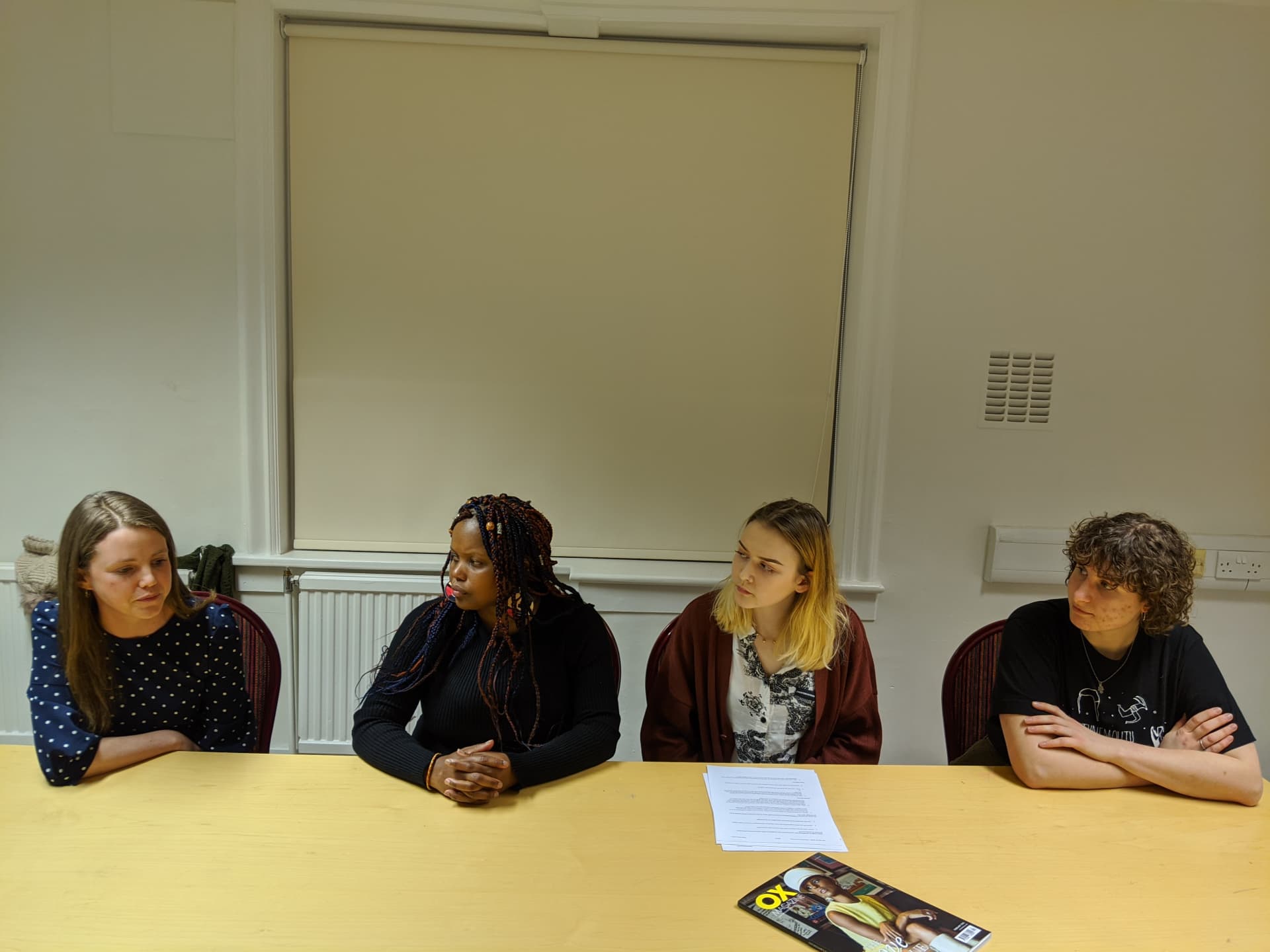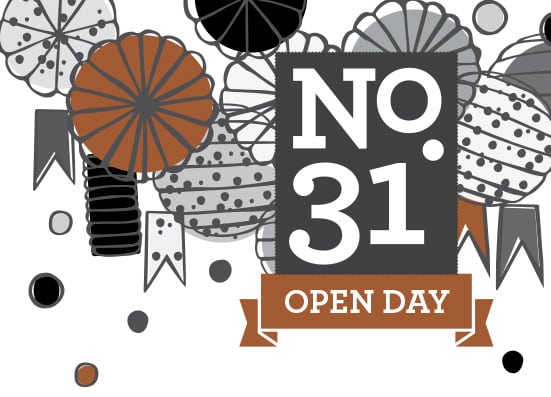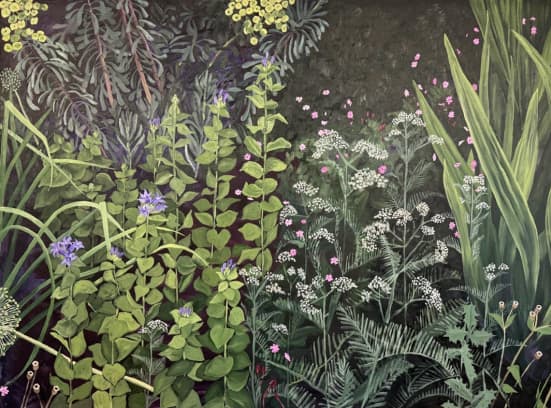This year to mark International Women’s Day, we are once again featuring the annual Oxford International Women’s Festival (OIWF). Approaching the festival, we took the opportunity to speak to three women; Jabu Nala-Hartley, Harriet Speed and Lamorna Newcombe, all of whom plan to have involvement. We spoke to these women about the most prevalent issues presented by sexism which society still faces, and the ways we can tackle them.
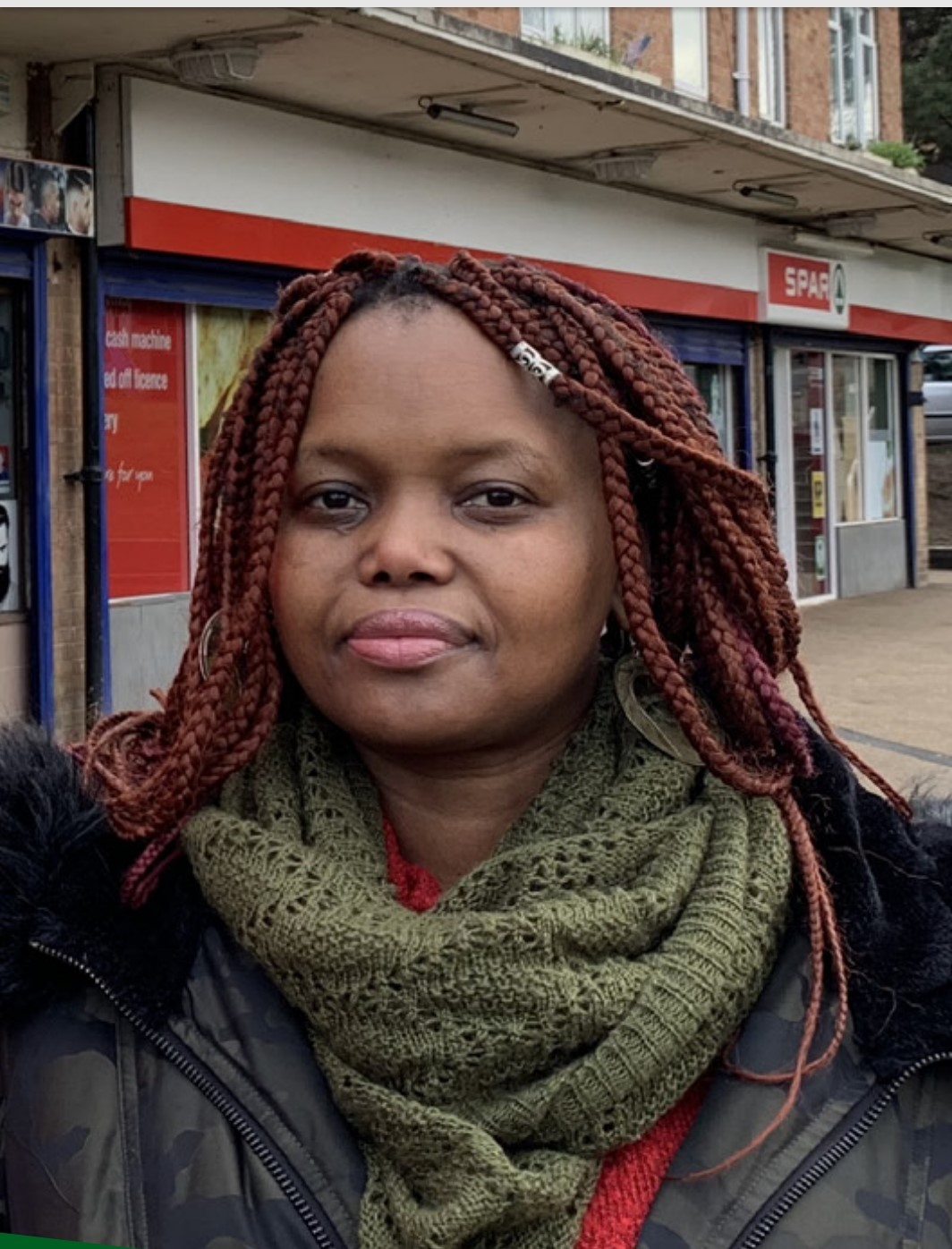 "Hi, I’m Jabu Nala-Hartley. I’m currently the chairperson for the Oxford Living Wage Campaign (OLWC). I’ve also been involved in various projects with the Workers Educational Association (WEA) in pushing courses around communities in Oxford like Blackbird Lees, Rosehill, Barton and many others. I’m also the candidate for the Labour Party in Barton. I’m originally from South Africa but I’ve been settled in the UK since the 80s."
"Hi, I’m Jabu Nala-Hartley. I’m currently the chairperson for the Oxford Living Wage Campaign (OLWC). I’ve also been involved in various projects with the Workers Educational Association (WEA) in pushing courses around communities in Oxford like Blackbird Lees, Rosehill, Barton and many others. I’m also the candidate for the Labour Party in Barton. I’m originally from South Africa but I’ve been settled in the UK since the 80s."
The Oxford Living Wage Campaign, for which Jabu is the chairperson, will be holding an event at the OIWF.
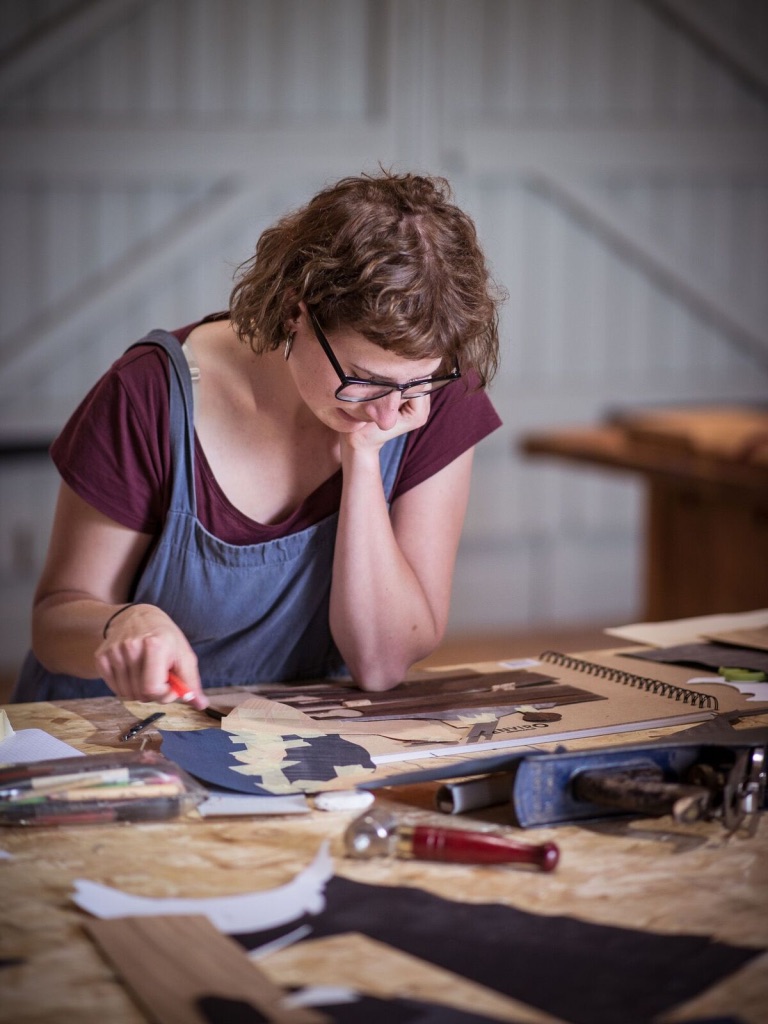 "I’m Harriet Speed, I trained as a furniture designer-maker and have since gone into lots of different avenues. I work in occupational health doing craft therapy with patients as part of the NHS and also teach furniture courses to young people, women and new audiences to try and get them involved in craft."
"I’m Harriet Speed, I trained as a furniture designer-maker and have since gone into lots of different avenues. I work in occupational health doing craft therapy with patients as part of the NHS and also teach furniture courses to young people, women and new audiences to try and get them involved in craft."
While Harriet is not part of any events at OIWF, she will be part of the Banbury International Women’s Day event, hosting her ‘This Girl Makes’ workshop at the Mill Arts Centre.
 "Hi, I’m Lamorna Newcombe and I work in publishing. I originally started off in science publishing and have since made a move into the digital and technological side."
"Hi, I’m Lamorna Newcombe and I work in publishing. I originally started off in science publishing and have since made a move into the digital and technological side."
Lamorna is a loyal attendee of the festival and hopes to visit as many events as she can this year.
Harriet, can you tell me a bit about the development of your personal project ‘This Girl Makes’?
H: I decided to go and study furniture design and making at university and as the furniture and craft industries in general are very male-dominated, I didn’t really see anyone who I identified with, so set about on a personal mission to find the women who are makers and promote them through a blog. I started sharing lots of different women’s stories and challenging gender stereotypes and from that, it developed into hosting workshops and trying to engage with people through making rather than just telling stories. I wanted to help other people change their points of view, whether it’s a woman who thinks ‘I can’t do that’ or the older men in furniture who may have certain views of what women can and can’t do.
Jabu, you’re the chair of the Oxford City Living Wage Campaign, can you tell me a bit about what lead to your involvement?
J: I think for most of us, it was about how we were affected by working in low-pay jobs. What is quite prevalent in the matter of equal pay is that women are still relegated to very low-pay work which is mostly reflective of a patriarchal attitude as to what ‘fits’ women. We’re still seeing a lot of women in the service sector, the care sector or in cleaning jobs, so as far as equal pay in women goes, there is still a gap regarding their own autonomy.
Samira Ahmed has recently been in the news amidst her equal pay claim against the BBC. Lamorna, do you think this issue she raised will ever fully disappear?
L: I can’t see it disappearing in the near future, it’s going to take a really long time. If you look at some of the estimates, they’re saying it will be 200 odd years before we resolve the gender pay gap down to nothing. I think it will take a lot more high-profile cases for other companies to start acting – I don’t think just one will make a difference for very many women.
Harriet, do you have any experiences of the gender pay gap in the industry you work in?
H: I spent a year working for a commercial furniture making company and because it’s a private company there to make profit in a very male-dominated environment, chances are that the pay there would’ve been more than where I am currently working. I’m now working in the health and care sector for the NHS, which is mostly a female environment, so I’ve really gone from one end of the spectrum to the other. The general trend would suggest that the salaries are generally lower where I’m working now, and it just so happens that it’s a female-dominated environment so… go figure.
Jabu, you were elected equality and diversity officer at Ruskin College. Has working in this field taught you anything about the possible reasons behind the pay gap?
J: It’s a combination of things, but the central argument is always that the status-quo hasn’t shifted much. Women have fought for equality since before the suffragettes but the status-quo in terms of who’s in power or control, is still very much male-dominated. The trickling down of professions has pretty much remained the same. Men tend to gravitate towards jobs which are highly rewarded in terms of pay in comparison to those which are relegated towards women, as seen in what Hattie has just explained about being in the care industry. Unless we shake attitudes and have educational processes which empower women to take on jobs which are regarded as reserved for men, we’re still going to have this problem.
Harriet, do you think that imposter syndrome is more prevalent in women in the workplace, or men?
H: I did actually read up on this and I found a study where they found that impostor syndrome is more prevalent in men when they’re higher up compared to women. My immediate reaction was quite shocked because it’s the narrative at the moment that women generally lack in confidence compared to men, so I tried to understand this study and I figured that (this is very much a generalisation) if a man and a women both get to a high point in their career, whereas a man has perhaps always been encouraged, women are constantly told that they’re not good enough and so have built up a resilience to this level of imposter syndrome. Contrary to that, I know plenty of women within the craft industry – myself included – that definitely suffer from imposter syndrome. For the same amount of money, I have to work 100% harder just to prove that I can do the job that I’ve been employed to do.
Harriet, do you think that onscreen female visibility is improving?
H: I definitely feel like when I watch films and TV that I’m seeing a lot more characters that I identify with. Not only more women, but women with different stories and different backgrounds and not just playing a typical stereotype. The fact that we still talk about it and there’s almost a novelty when you see a strong woman on screen, shows that we’re still not quite there.
Lamorna, a lot of people argue that while female visibility in film is improving, that there’s still an issue with how women are presented on screen, what do you think about that?
L: I’ve noticed that I tend to pick and choose the media that I consume based on the characters that I want to see. I’ve really enjoyed some of the more recent TV series like Unbelievable on Netflix and Little Women, where there are the much stronger portrayals of women, but when I do think back to the TV I watched as a child, it’s changed a lot and the varieties of the personalities and different types of people that you see on screen has massively increased. There’s still a long way to go but it’s definitely moving in the right direction.
Jabu do you agree that female visibility is improving?
J: The industry still promotes men as being more mathematically oriented and women are presented as service types and there’s still a big gap as far as I’m concerned. As Lamorna has just explained, it has changed when you look at the perceptions in film, so there’s that slight improvement but I personally feel that we still have a long way to go, particularly regarding women of colour. Whilst the issues of gender are prevalent for all women, there are women who are experiencing oppression at a much deeper level.
There’s a lot of shame surrounding periods, especially in countries such as Nepal where menstruating women are seen as impure and they’re banished to huts during their cycles. Do you think – to a lesser extent – that this kind of shame extends to Western countries like the UK?
J: I think it still does. If you look at the debate that we had a couple of years ago about women coming into the priesthood, one of the arguments which was presented as to why women shouldn’t be part of the clergy, is the fact the women have periods. That whole notion of demonising women’s sexuality and this idea of them being impure is still pretty much part of the western psyche; we haven’t shifted that much from this. Most of these institutions are still dominated by the old order which believed in this, and while I’m not suggesting they still believe in it, we still don’t have that many women who have come into the priesthood, so this argument succeeded.
Lamorna, how do you think we can tackle this stigma surrounding periods?
L: By normalising it and talking about it. The ‘This Girl Can’ campaign got a lot of attention in their most recent video because it shows a woman bending over and you can see the string from her tampon. That is almost unheard of on TV but it’s perfectly normal for women every month and yet it’s never discussed or shown.
Harriet, working towards the field you’re in today, did you notice a difference in how far you were encouraged to strive towards that career in comparison to your male peers?
H: I’ve been incredibly privileged to have grown up in a very matriarchal family. My mum very much defied gender norms – that was why I needed to start ‘This Girl Makes’, because not everybody is as lucky as me. Things only change if people on the front-line actually start doing things and using their privilege to help others.
Lamorna, do you think that social media is harmful regarding ideas of body image?
L: I’m a part of the sewing community which is really pushing towards broadening the sizes of clothing patterns which are available and making it really normal to be of any size. That’s why some of these people have started sewing, because they can’t find any clothes that fit them. It would be really nice to see more TV with this variety, showing that it’s absolutely okay however you look, and that there isn’t this one type of body that you should have, to be seen as pretty or desirable.
Harriet, why do you think social media has a negative impact on people’s body image?
H: People are never really off it. It’s constantly with them so they’re constantly being sent these sponsored adverts for what women should or shouldn’t look like. The positive of that has been a lot of these DIY body positivity movements which have started. People are being more open about posting selfies where they’re semi-clothed and they’ve got their rolls out. In one sense we’re at the height of capitalism; telling women what to wear and how to look but equally there’s this under-current response where people are like, ‘Nah, we’re sick of this.’

